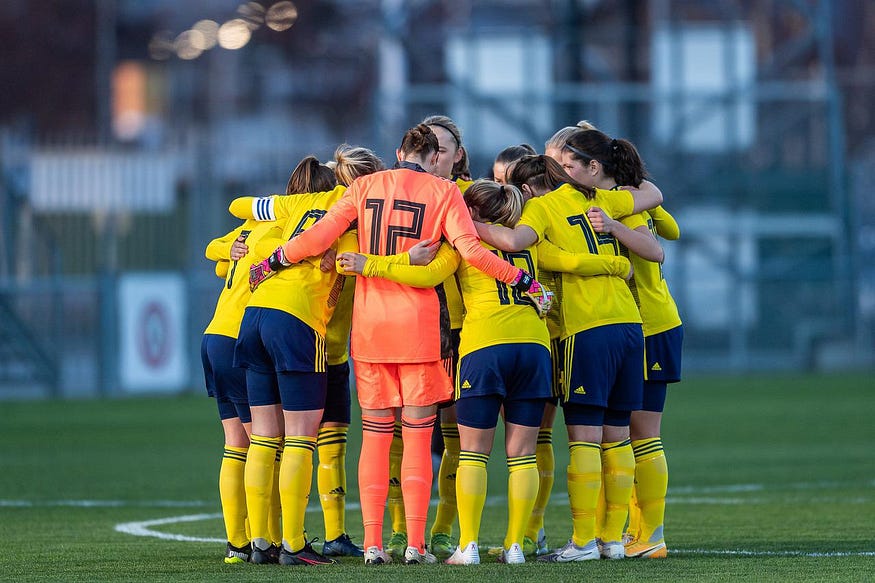Equity in education and sports has had a huge impact

No person in the United States shall, on the basis of sex, be excluded from participation in, be denied the benefits of, or be subjected to discrimination under any education program or activity receiving Federal financial assistance. — Title IX of the Education Amendments of 1972
Title IX’s fiftieth anniversary will be celebrated on June 23, 2022.
Full participation in sports and other educational programs has meant a total change in opportunities for women. Women physicians and lawyers used to be rare and unusual. Professional women’s sports were almost nonexistent.
In 1972, almost 300,000 high school girls participated in athletics, as compared to 2022 when that number is over 3.4 million. The comparable numbers for boys are 3.6 million (1972) and 4.5 million (2022).
That is amazing. Title IX has made a huge difference in the lives of millions of girls, now women. And because of that change for women, men have experienced wonderful changes, too. Partners share more common experiences. Men need not be pigeonholed in their roles, either.
In college athletics, the rate for women has changed from 15% participation in all collegiate athletics (1972) to 44% (2022).
Title IX, however, was not targeted at sports. The brief statement at the top of this post does not reference sports. The Civil Rights Act of 1964 prohibited discrimination in employment, but Title 1X of 1972 prohibited discrimination by sex in education, and in all programs sponsored by educational institutions which received federal funds. Sports was the big kahuna, and over the years generated many arguments and court cases.
I went back and skimmed Games Mother Never Taught You by Betty Harragan, originally published in 1977.
I remember buying that book and reading it to understand sports team and military metaphors, and the unwritten rules for getting along in corporate politics.
It was a book touted as a must-read for women starting work. That book and one about dressing for success were essential for a young woman. Most, like me, did not have a clue what they were doing when starting in the corporate world.
I clearly remember one question a recruiter asked me at that time. “What sports do you enjoy doing?”
My answer was skiing and swimming. He responded, ”Hmm, not team sports,” and made a note on his interview sheet.
I remember his reaction after all these years because I never had the opportunity to play team sports in high school, and there were limited opportunities in college.
I regret I didn’t play sports when I was young, aside from the dreaded gym classes while wearing the dreaded gym suits.
I enjoyed recreational sand-lot volleyball and softball, occasional games scrabbled together during summer camps.
My boys played sports for all the reasons I wish I’d played sports.
It was fun. It was a way to bond with friends.
They grew comfortable in their skins. They learned how to live with a growing body, and how to acquire physical skills and confidence.
They learned roles; the first baseman has a different job than the center fielder. Sometimes a player sacrifices to advance the runner. All the sports metaphors are true on the field and in life when a player might need to take one for the team.
I struggled with and came late to teamwork. Playing on a sports team would have helped. I learned to love working on and leading a high-functioning team.
We know that equity in women’s sports and playing has developed those skills for young women. Leadership. Teamwork. Confidence. Physical presence and ease. Oh, not without struggles, but sports can help us.
Billie Jean King is a founder of the Women’s Sports Foundation, and one of the leaders who revolutionized women’s sports.
The Foundation’s website is a terrific resource for information on Title IX and its 50-year history.
Her tennis match with Bobby Riggs in 1973 was the famous Battle of the Sexes. It was incredibly hyped after Bobby Riggs had beaten Margaret Court, the top woman tennis player. Billie Jean King withstood enormous pressure to win the game, outplaying Bobby Riggs’ lobs which had rattled Court.
I watched the game in mixed company as if the fortunes of gender were riding on the game. There were many barbed comments.
How long ago that time seems now; and yet, advances from those times are under threat again.
But the recognition of the signing of Title IX is coming soon, and for that, we can celebrate.

SingingFrogPress
Thanks for focusing on this–somehow I feel the current climate for women’s rights is in a backslide moment–with abortion rights about to be undermined by the Supreme Court. And women speaking up loud and clear about how Title IX benefited them as we mark the 50th year since it’s passage feels very important to me. We didn’t always have these rights and they are being taken away–the struggle continues!
Kathleen Murphy
Excellent article! I came of age prior to Title IX. Like the other girls in my class, I spent gym class mostly square dancing or complaining I had my period. (The gym teacher seemed to notice that 30 girls all had nearly continuous periods.) When I graduated college and entered the work world, I felt lost. The language, the culture, the innuendo…it was all going over my head. I got my hands on a copy of Games Mother Never Taught You, and gained a window into this world. I worked for 42 years in corporate America, and things eventually got a little easier. I’m thankful life is better for my daughter and others in her generation, largely thanks to Title IX. I think men are so completely steeped in the world of sports that they don’t understand this Great Divide at all.